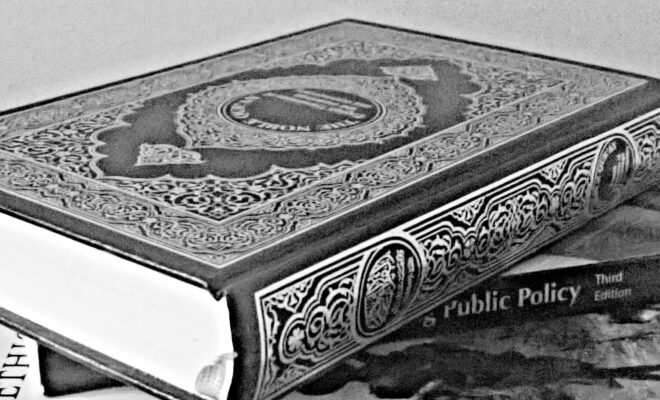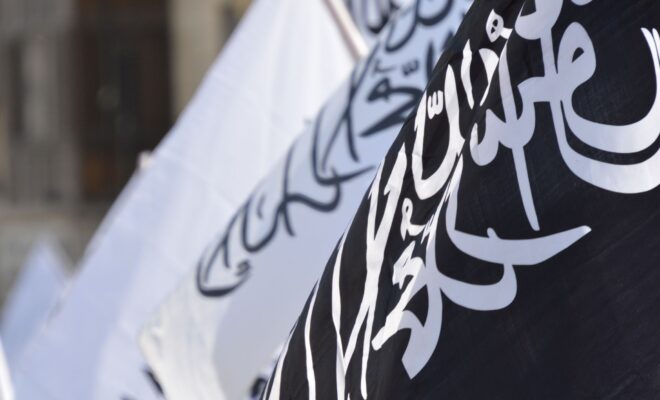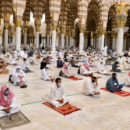How Does Islam Eradicate Racism?

In the wake of George Floyd’s murder by a police officer, and the ensuing Black Lives Matter (BLM) protests, Muslims should ask themselves how Islam eradicates racism.
Muslims are well-aware of the honour Islam bestowed on Bilal ibn Rabbah (ra), a freed black slave, one of the first converts to Islam, a Companion – or Sahabi – of the Messenger of Allah Muhammad (saw) and his muezzin. But citing Bilal’s (ra) high status in Islamic history alone is not enough to give Islam credit for solving the problem of race relations within society.
Rather, Muslims must prove that claim using the foundation (i.e. aqeedah) of Islam, the systems of Islam, and the practice of the Messenger of Allah (saw) and the consensus (ijmaa’) of the Companions of the Messenger (ra).
Indeed, the brutal and blatant racism African Americans endure in the United States is only a symptom of the corruption of the Capitalist system.
Therefore, to completely eradicate racism, we must uproot this failed system and, in turn, replace it with a truly just alternative.
Understanding the Reality of Racism
Throughout human history, there have always been groups of people who claimed superiority over others based on lineage, tribe, race, or ethnicity. This doctrine existed during the lifetime of Bilal (ra) and is still globally pervasive today.
However, the racism we see in the U.S. in recent history is systemic. This means that the system – i.e., police, laws, courts, and state policies – actively works to dehumanize African Americans and targets them for repression.
This systemic or institutionalized racism had started when the Capitalist elites divided the poor along racial lines in the 1600’s to prevent them from rising up and demanding a fair share of society’s resources.
In turn, the Capitalist elites managed to convince the poor whites to actively contribute to the system of slavery by giving them a stake in it, and by justifying it under the doctrine that purports that European whites are superior to other racial and ethnic groups, especially blacks.
The system of slavery was eventually replaced with the system of segregation. This shift happened because slavery became indefensible under the claimed “American exceptionalism”. The U.S. ended segregation in the 1960s when it made world conquest its top priority.
However, systemic racism persisted in less obvious ways, and a large portion of society continued embracing this philosophy (read more about it in our earlier article).
The lesson in these historical realities is that reforming the system or changing the laws will not change the motives of the Capitalist elites. Racism will not go away; the elites will simply shift it elsewhere to other institutions and policies.
To eliminate systemic/institutionalized racism, one must uproot the Capitalist system. It requires both changing how individuals think and replacing the system with a Just one.
Implementing Islam to Eradicate Systemic Racism
Islam is not just a religion, but an ideology (Aqeedah) that delivers detailed instructions on how to structure society. It works to completely transform both the individual along with the wider society’s common thoughts and emotions, its laws, institutions, and government policies.
Islam offers a comprehensive roadmap to eradicating racism in all of its forms. Islam hones the individual to reject racism both intellectually and emotionally.
It also builds up society to root out all types of racist thoughts and emotions in the public sphere and dismantles factors that fuel racist ideas and sentiments.
Transforming Individuals
In Islam, the only attribute that can make someone better than someone else is righteousness. In other words, one’s race, tribe, nationality, wealth, etc., have no bearing on the standing or nobility of that person. Allah (swt) said:
“O mankind, indeed, We have created you from male and female and made you peoples and tribes that you may know one another. Indeed, the most noble of you in the sight of Allah is the most righteous of you.” [Qur’an: Hujjurat, 49:13]
In an Islamic society, individuals are driven to compete for the Hereafter, not this world (Dunya). Indeed, the ‘nobility’ of the early Muslims was the result of their deeds – i.e., efforts to apply Allah (swt)’s laws, give in charity, or fight in Jihad.
Bilal the Companion (ra) attained his high status due to his perseverance against persecution, which the elite of Quraysh inflicted on him when he embraced Islam.
No other attribute matters in Islam. The best Muslims are those who sacrifice the most in the path of Allah (swt), not a specific race, tribe, ethnicity, family. The Messenger of Allah (saw) said in his last sermon:
“All mankind is from Adam and Eve, an Arab has no superiority over a non-Arab, nor a non-Arab has any superiority over an Arab; also a white has no superiority over black, nor a black has any superiority over white except by piety and good action.” [Khutbat-ul-Wada’]
Administering Justice Equitably
Under the Shariah, the elites hold no legal advantage over the poor. In the U.S., the courts are ruthless against blacks who commit petty crime, yet these same courts ignore the crimes the Capitalist elites commit daily.
The public discourse in Capitalist nations largely ignored the crimes that led to the Great Recession. Nor did it condemn the wars that led to the slaughter of hundreds of thousands of people in the Muslim lands. Nor does it care about the legalized theft of taxpayer money through unfair laws, tax breaks, bailouts, to the Capitalist elites.
In Islam, the elites are given no such benefits. In fact, at the time of the Messenger of Allah (saw), a woman from an elite family had tried to get out of the punishment for theft (i.e., amputation of the hand) by using her family’s influence. But the Messenger of Allah (saw) rejected this effort and punished her to the full extent of the law. He (saw) said:
“If Fatimah bint Muhammad [the daughter of the Prophet (saw)] were to steal, I would cut off her hand.” [Sunan an-Nasa’i]
The Righteous Caliphs (Khulafah ar-Rashidun) who came after the Messenger of Allah (saw) were also aware of the privilege they and their families could enjoy because of their high status. So, these Caliphs actively undermined themselves to see that they and their families got no larger share – if not less – than the rest of the population.
Umar bin al-Khattab (ra), the second caliph, noticed that the camels of his son, Abdullah bin Umar (ra), were unusually fat and healthy. So, Umar (ra) asked Abdullah (ra) why this was the case, and his son explained that he bought the camels when they were lean, and that he took them to the public pastures for grazing.
Umar (ra) remarked that the people must have given those camels preferential treatment because they belonged to the son of the leader of the Muslims.
Hence, Umar (ra) ordered his son to surrender all of the profits from selling the camels to the Treasury of the State. Umar (ra) saw to it that the profits benefitted the Ummah – not himself or his family.
These examples are relevant to systemic racism because to destroy it, one must ensure the laws of society apply to all, equally. Only Islam provides such a high level of justice in the application of the laws.
Moreover, no power can change these laws as, in Islam, the laws are legislated by Allah (swt) alone and no human has this right. If a ruler even attempts to deviate from this societal order, the Ummah has an obligation to remove him, by force if need be.
Providing Resources to Everyone
In Islam, the State (Khilafah or Caliphate) does not withhold resources or restrict them to the benefit of a few. Rather, all citizens are entitled to live a life of respect and dignity. The Messenger of Allah (saw) said in the following hadith:
“There is no right for the son of Adam other than these things: a house in which he lives, a garment to cover his nakedness, a piece of bread, and water.” [Sunan al-Tirmidhi]
In contrast, the Capitalist elites have created artificial scarcity among the masses by siphoning society’s wealth (via legislation). They perpetuate the suffering within society by dividing it along arbitrary lines (such as race) and create racial toxicity and social dissolution.
Rejecting Man-Made Divisions
Islam rejects man-made divisions and hierarchies between people. Islam does not allow Muslims to define relations between each other based on an attribute alien to Islam, especially ethnicity and race. The Messenger of Allah (saw) said this about such ties or bonds (‘asabiya):
“…People should give up their pride in nations because this is a coal from the coals of hell-fire. If they do not give this up Allah (swt) will consider them lower than a lowly worm which pushes itself through khur (feces).” [Abu Dawood and Tirmidhi]
Indeed, anyone who claims one race is superior to another is a major wrongdoer. The Khilafah would treat race-based relations as a poison and will neutralize them at every level.









